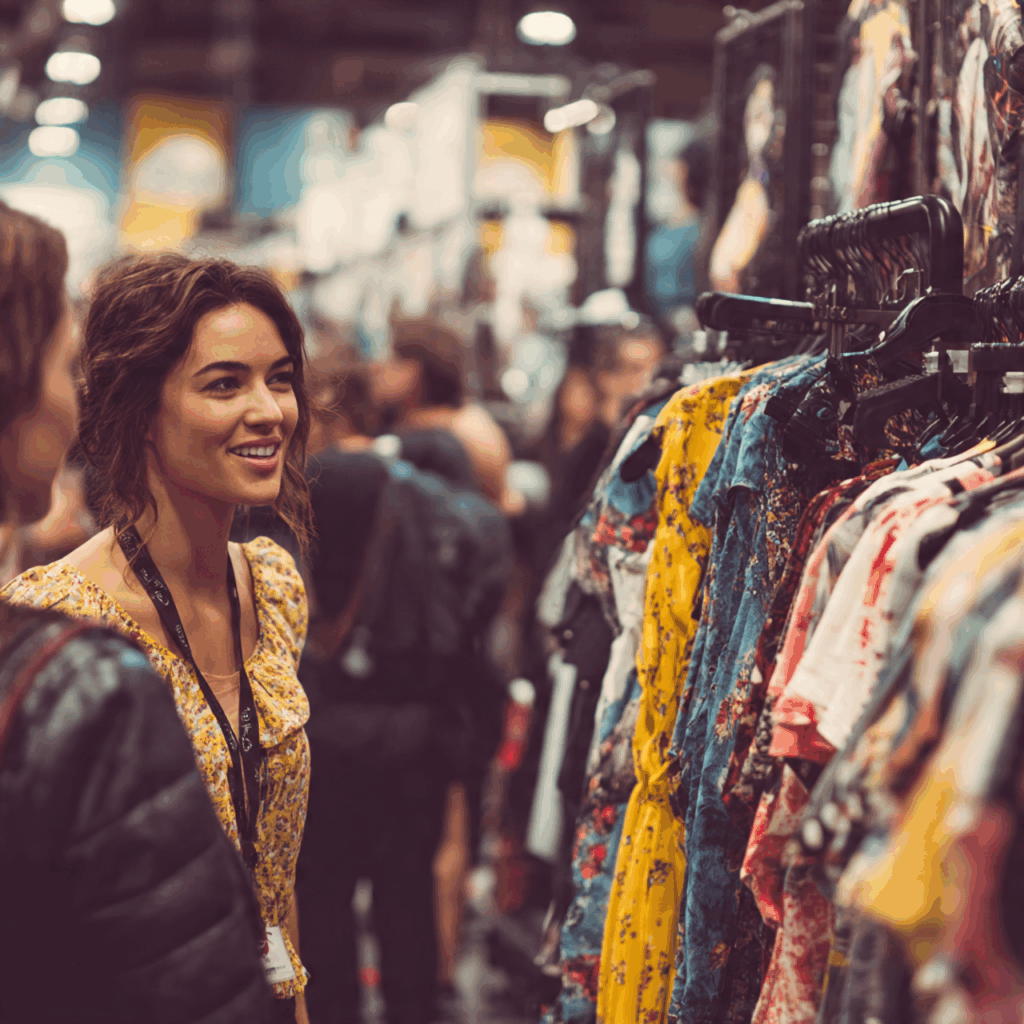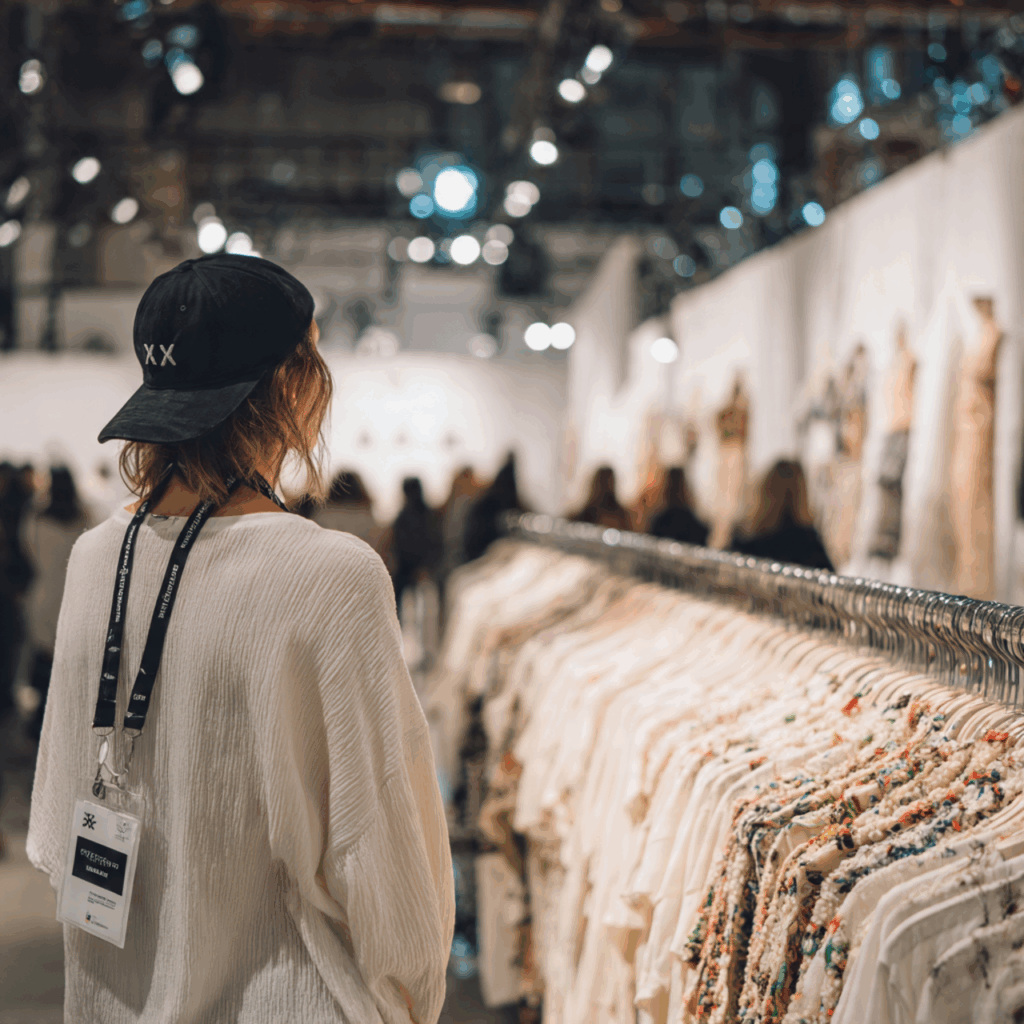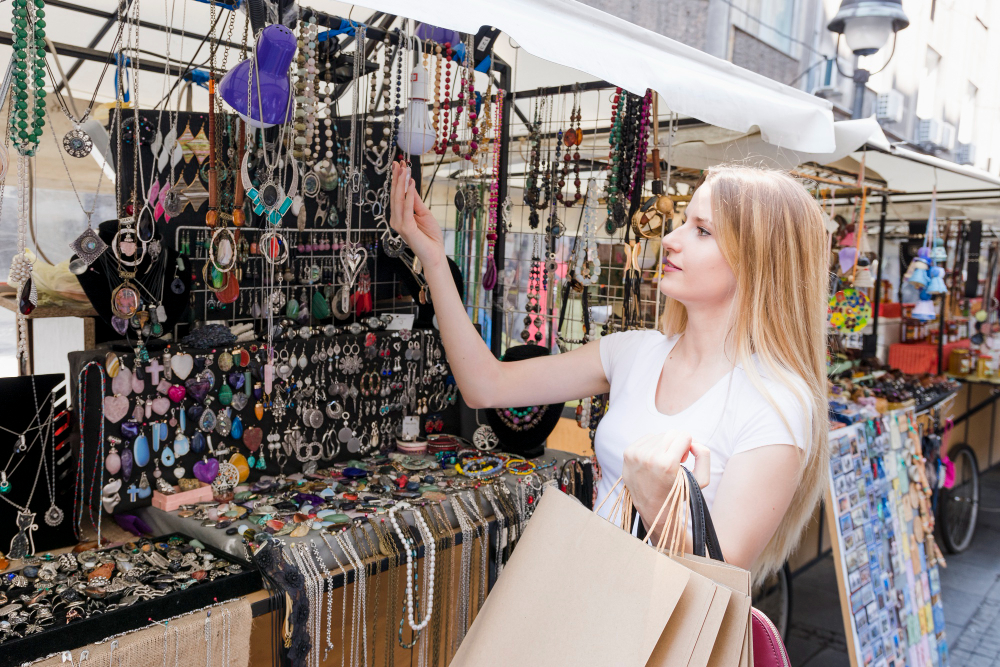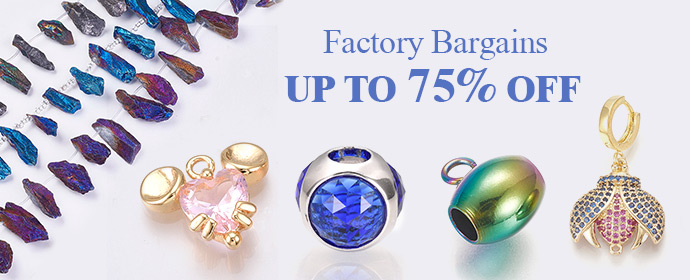In the dynamic UK fashion industry, accessories like statement jewelry, premium handbags, and stylish scarves are essential for defining a brand’s identity and captivating customers. With the UK fashion market valued at £66 billion in 2024 and accessories projected to grow by 4.2% annually through 2027, sourcing high-quality suppliers is critical for brands and retailers aiming to stand out. This guide outlines how to find reliable UK fashion accessories suppliers to elevate your brand in 2025, focusing on quality, sustainability, and efficiency.
Why UK Fashion Accessories Suppliers Are Key

Partnering with UK-based suppliers offers distinct advantages for fashion businesses:
Superior Quality: UK suppliers often meet rigorous standards like ISO 9001, ensuring durable and well-crafted accessories.
Efficient Logistics: Local sourcing reduces shipping delays and avoids post-Brexit customs complexities.
Sustainability Focus: With 68% of UK consumers preferring eco-friendly brands in 2024 (per Fashion Retail UK), many suppliers offer sustainable materials like recycled metals or vegan leather.
Market Alignment: UK suppliers understand local trends, ensuring accessories resonate with British consumers, from high-street shoppers to luxury buyers.
Whether you’re launching a new collection or scaling an established brand, reliable suppliers are the backbone of a successful accessories line.
Step 1: Clarify Your Accessories Requirements
Before searching for suppliers, define your brand’s needs to ensure a perfect fit:
Product Category: Specify whether you need jewelry (e.g., necklaces, bracelets), bags, belts, hats, or scarves. Detail materials like sterling silver, organic cotton, or recycled plastics.
Target Market: Identify your audience—luxury clients, eco-conscious Gen Z, or budget-conscious trendsetters.
Order Specifications: Determine if you need small-batch custom designs or bulk wholesale orders. Some suppliers offer bespoke services like embroidery or branded hardware.
Sustainability Goals: Prioritize suppliers using eco-friendly materials or processes, aligning with the growing demand for green fashion.
Budget Constraints: Account for unit costs, minimum order quantities (MOQs), and logistics fees to stay within your financial plan.
Pro Tip: Prepare a detailed Request for Quote (RFQ) with specifications like material quality, design preferences, and delivery timelines to streamline supplier responses.

Step 2: Find UK Fashion Accessories Suppliers
The UK hosts a diverse network of accessories suppliers, from artisans to large-scale manufacturers. Here’s how to locate them:
Online Directories: Platforms like Made in Britain or iSupplyhub and Textile Association (UKFT) list verified suppliers for jewelry, leather goods, and more. Filter by specialization or location (e.g., London, Manchester).
Trade Shows: Attend events like Pure London or London Fashion Week’s accessories showcases to meet suppliers and view their products firsthand.
Industry Networks: Join organizations like UKFT or the British Fashion Council for supplier referrals and networking opportunities.
X Platform: Search X for keywords like “UK fashion accessories suppliers” or “wholesale jewelry UK.” Posts from suppliers often highlight their portfolios, certifications, or recent projects.
Local Connections: Engage with regional fashion hubs, such as Manchester’s textile district, for local supplier recommendations.
Example: A search on X for “UK sustainable jewelry suppliers” may reveal posts from artisans showcasing eco-friendly collections, complete with client feedback and lead time details.
Step 3: Assess Supplier Reliability
To ensure quality and consistency, evaluate potential suppliers carefully:
Certifications: Look for ISO 9001 for quality or GOTS (Global Organic Textile Standard) for sustainable textiles. For jewelry, check for hallmarking standards.
Product Samples: Request samples to test quality—e.g., verify stitching on bags or durability of earring clasps.
Reputation: Search X for customer reviews using hashtags like #UKFashionSuppliers or check trade association feedback for insights into reliability.
Capacity: Confirm the supplier can meet your order volume, whether it’s 100 custom necklaces or 10,000 wholesale scarves.
Brexit Compliance: Ensure suppliers are well-versed in post-Brexit trade rules to avoid delays if they source materials internationally.
Checklist:
- Do samples meet your brand’s quality standards?
- Are MOQs and pricing transparent?
- Can they deliver within your timelines?
- Are they responsive and communicative?
Step 4: Request and Compare Quotes
Send your RFQ to multiple suppliers to compare offerings. Focus on:
- Cost Breakdown: Analyze unit prices, customization fees, and shipping costs.
- Lead Times: Ensure delivery aligns with your product launch or seasonal needs.
- Value-Added Services: Some suppliers provide private labeling, sustainable packaging, or design collaboration.
- Contract Terms: Review payment terms (e.g., 50% upfront) and policies for defective items.
Tip: Create a comparison table to score suppliers on quality, cost, and delivery speed. Negotiate for bulk discounts or flexible terms for long-term partnerships.
Step 5: Foster Long-Term Partnerships
Reliable suppliers are strategic allies. Build strong relationships by:
- Open Communication: Use email or regular check-ins to align on expectations and updates.
- Consistent Orders: Regular business can lead to priority service or discounts.
- Collaborative Innovation: Partner with suppliers to develop unique designs, like custom-engraved buckles or eco-friendly fabric blends.
- Performance Reviews: Evaluate suppliers quarterly on quality, timeliness, and responsiveness to maintain standards.
Case Study: A London-based boutique collaborated with a UK jewelry supplier to create a recycled silver earring line, boosting sales by 25% due to its sustainable appeal and exclusive designs.
Step 6: Stay Ahead of Trends
The UK accessories market is fast-evolving. Keep your brand competitive by tracking trends:
- Eco-Friendly Materials: Vegan leather and recycled metals are in high demand, with 45% of UK brands prioritizing sustainability in 2025 (Fashion Retail UK).
- Statement Pieces: Bold, oversized jewelry and structured bags dominated London Fashion Week 2025 runways.
- Tech-Enhanced Accessories: Smart wallets with RFID protection or wearable tech-integrated accessories are gaining popularity.
Follow X accounts of fashion influencers or post queries like “UK eco-friendly textile suppliers” to discover trending suppliers and products.
Pitfalls to Avoid
- Prioritizing Price Over Quality: Cheap suppliers may cut corners, harming your brand’s reputation.
- Overlooking Local Options: UK suppliers offer faster delivery and fewer customs issues compared to international ones.
- Skipping Sample Testing: Always test products to ensure they meet your standards before committing.
- Ignoring Trends: Failing to align with sustainability or bold design trends can limit market appeal.
Resources for Sourcing Success
- UKFT: Access supplier directories and industry insights.
- Made in Britain: Find verified UK-based manufacturers.
- Gov.uk: Stay updated on post-Brexit trade regulations.
Conclusion
Sourcing reliable UK fashion accessories suppliers is a strategic move to elevate your brand with quality, trend-aligned products. By defining your needs, researching through directories and trade events, and building strong partnerships, you can create a standout accessories line. Stay ahead of trends like sustainability and bold designs to captivate customers in 2025’s competitive market.
Recommend0 recommendationsPublished in Uncategorized





